|
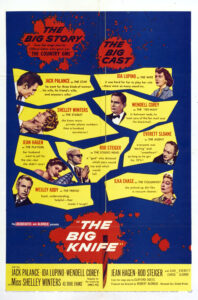
Synopsis:
At the insistence of his idealistic wife (Ida Lupino), philandering Hollywood actor Charlie Castle (Jack Palance) resists signing another seven-year contract with studio boss Stanley Hoff (Rod Steiger) — but when Hoff and his assistant (Wendell Corey) threaten to reveal Charlie’s part in a hit-and-run accident the previous year, he must reconsider his options.
|
|
Genres, Themes, Actors, and Directors:
- Actors and Actresses
- Blackmail
- Hollywood
- Ida Lupino Films
- Jack Palance Films
- Jean Hagen Films
- Marital Problems
- Play Adaptations
- Robert Aldrich Films
- Rod Steiger Films
- Shelley Winters Films
- Wendell Corey Films
Review:
Based on Clifford Odets’ 1949 stage play, this infamous skewering of Hollywood’s studio system (directed by Robert Aldrich) is actually a broader indictment of all powerful organizations and tycoons who attempt to silence the creativity and authenticity of individuals. Unfortunately, while Odets’ script is often sharp and incisive (“Never underestimate a man just because you don’t like him,” warns Charlie’s agent), it’s just as often overly florid and theatrical (“Why did I add this burden to that grotesque, devoted soul?” laments Palance at one point, struggling to let the words roll naturally off his tongue). Even worse, the film is overly stage-bound, with limited sets (nearly every scene takes place inside Castle’s manse) and clear divisions between the three “acts” of the story. Yet the strong ensemble cast works hard to overcome the script’s flaws, with especially noteworthy performances given by the many supporting players (Wendell Corey, Shelley Winters, Jean Hagen, and others). Most of Aldrich’s movies — always edgy and unique — are worth watching at least once, and this is no exception.
Redeeming Qualities and Moments:
- Jack Palance as Charlie
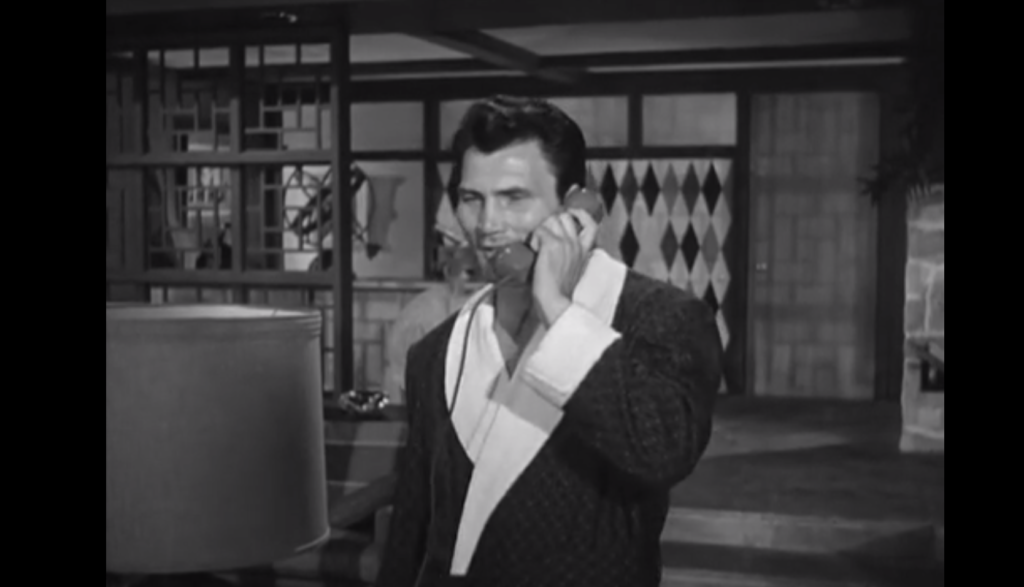
- Shelley Winters as Dixie Evans
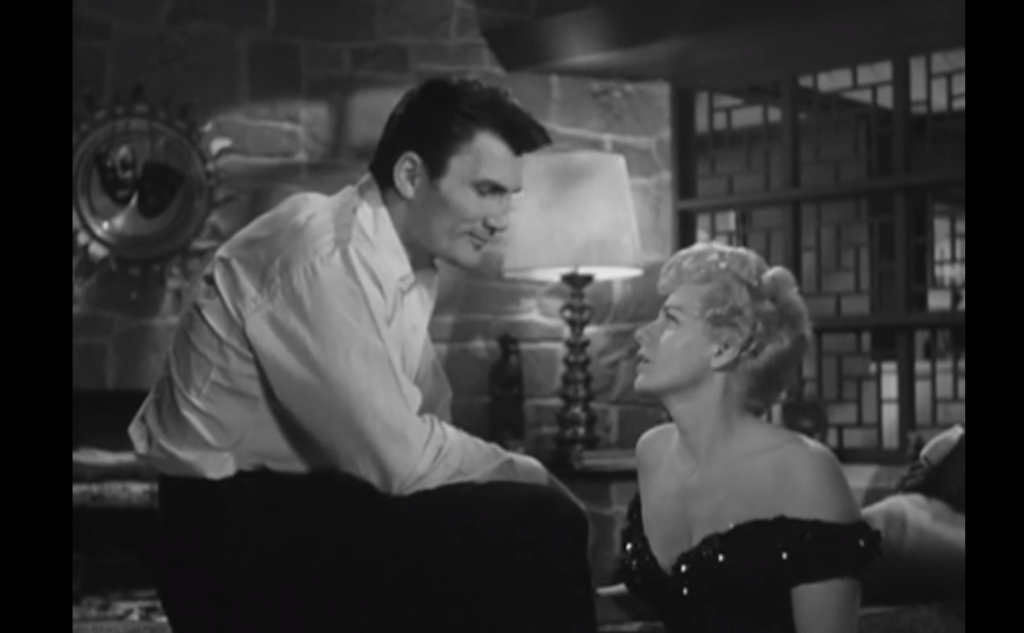
- Ida Lupino as Charlie’s long-suffering wife, Marion
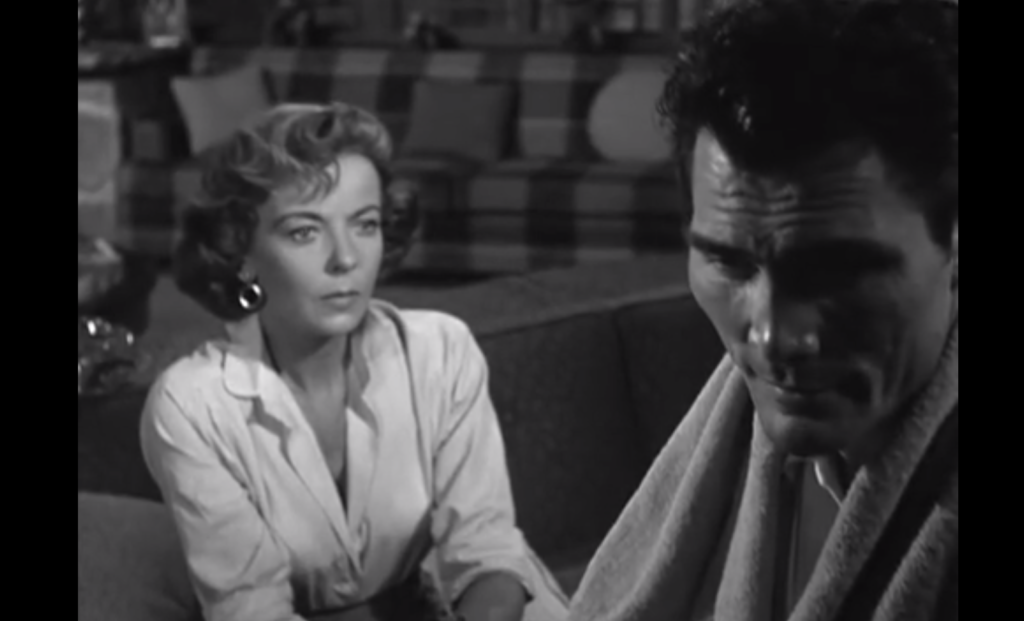
- Wendell Corey as “Smiley” Coy
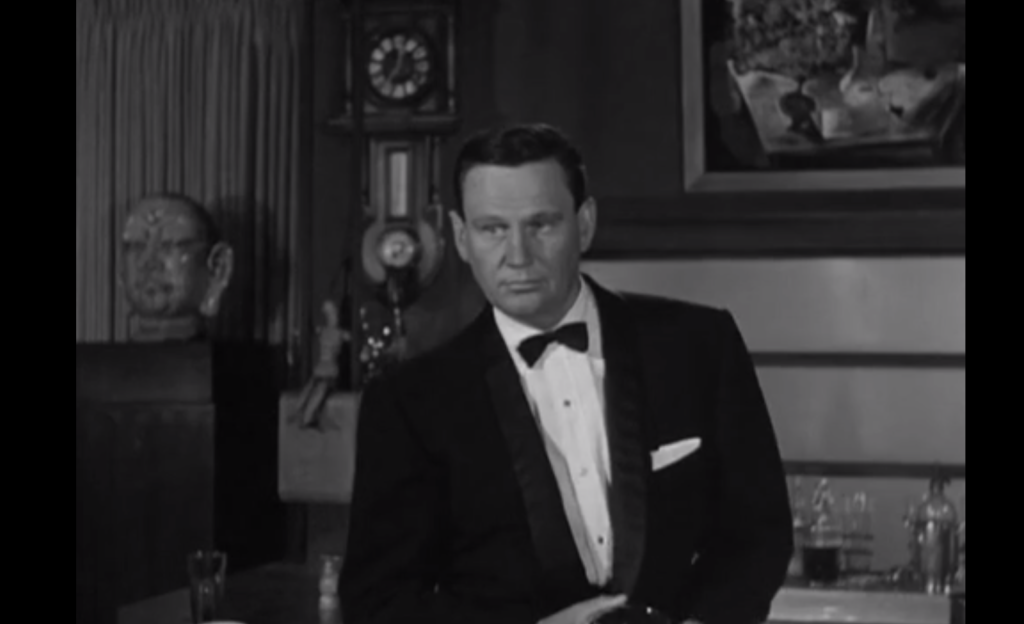
- Jean Hagen as the obnoxiously seductive wife of Charlie’s press agent
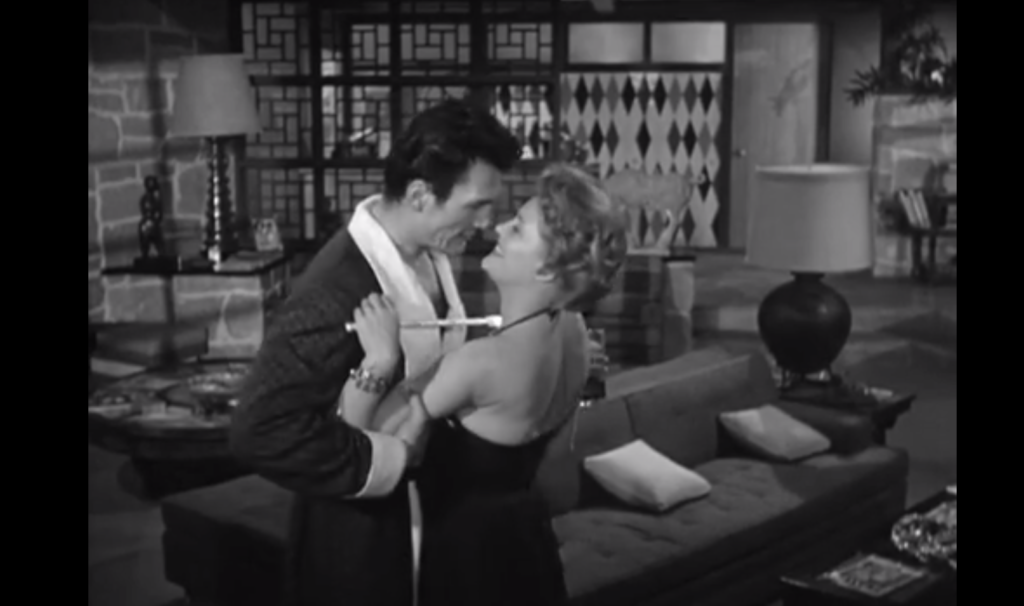
- Wesley Addy as Marion’s would-be beau, Hank
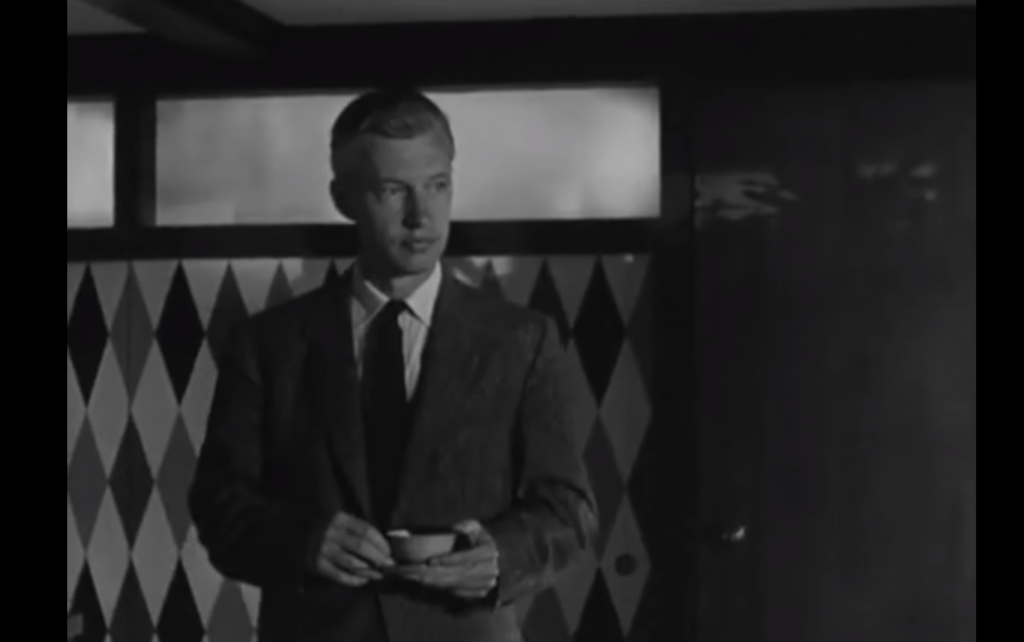
Must See?
Yes, simply for its historical importance and earnest performances.
Categories
Links:
|
One thought on “Big Knife, The (1955)”
A must for film fanatics, esp. since the plot opens the underbelly of the very industry that fascinates them.
Gotta say this one pulls me in each time I see it. The first of Aldrich’s three movies with the film world as backdrop (the others being ‘What Ever Happened to Baby Jane?’ and ‘The Legend of Lylah Clare’), this one is the blackest in terms of criticism of its subject matter. (As TCM’s Robert Osborne informs us, Palance got the lead after lots of other top actors turned it down. What’s to turn down? It’s a great part…even if it is in a film that gives new meaning to ‘dirty laundry’. …But then, ‘some’ are careful…still…about perception.)
It’s true that, as a dialogue writer, Odets could at times be one of the biggest challenges to actors. But I think Palance (the “warrior minstrel with a forlorn hope”) acquits himself nicely. I esp. like when he spews to Corey, “Your words have hair on them!” and when he later informs Corey in jest re: Lupino, “[She’s] cheap, serf labor; I pay her by the lifetime.” (cf.: Check out how the leads take on the same challenge in Odets’ screenplays for ‘Humoresque’ and ‘Sweet Smell of Success’, for example.)
I think DP Ernest Laszlo did an amazing job in generally closed quarters (compare his work with, say, ‘The Bad Seed’, which does often have the static feel of a filmed play).
Most of the budget here went to the actors (thanks again, Bob), but the compact rehearsal period did much to give the film the requisite intensity. Everybody turns in top-notch performances, so it’s hard to single anyone out. Each turn is so rich that it offers up more on repeat viewings.
One of many fave moments comes when Hagen is longing to be called a whore –
Palance: There’s a word for you.
Hagen: Well, why don’t you say it, darling?
It does seem that Addy is very much a stand-in for Odets. (cf. for views of Odets: ‘Frances’ and ‘Barton Fink’)